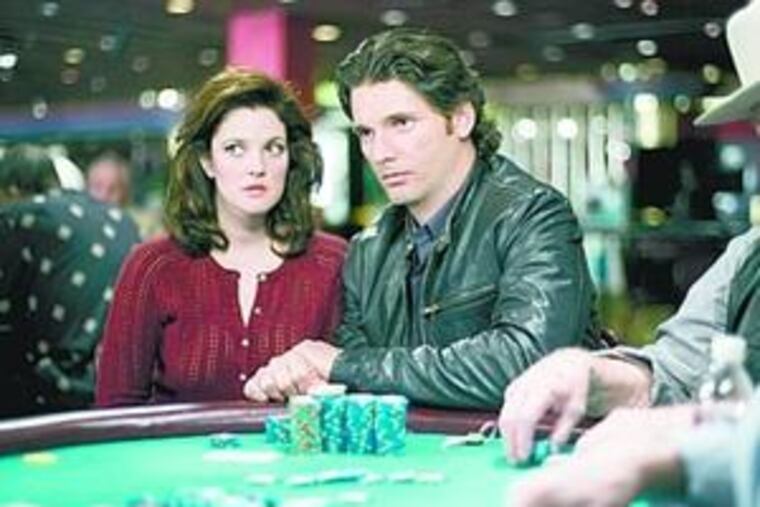
Like the song says, you got to know when to hold 'em, know when to fold 'em, know when to walk away, know when to run.
Walking, running, folding - those would have been good options for "Lucky You," a misfired poker drama featuring Eric Bana as a professional card player with a knack for losing the big one.
The movie feels wrong from the get-go, as director Curtis Hanson fumbles to get a fix on Bana's character, a chronic problem in "Lucky You," and a big one, as the movie is a character study.
It doesn't help much that the guy's name is Huckleberry, the toxic residue of a father (Robert Duvall) who was a literature professor before he became a degenerate gambler who stole from his wife to feed his habit, then left the family in the lurch on his way to becoming the world's foremost poker player.
Now mom's dead and Huck is angry, a grown man with a chip on his shoulder that limits his potential as a poker player (he makes bad bets to challenge players he doesn't like) and makes him a lousy boyfriend - Vegas is littered with singers, showgirls and waitresses he loved and left.
In "Lucky You" none of this really feels right. Bana, whose eyes are big, moist pools of sincerity, never sells Huck as a callous ladies' man, and though he lives pot-to-pot in a foreclosed home empty of furniture, he lacks the aura of sweaty desperation needed to establish Huck as a white-knuckle gambler (even the two leg-breakers who show up to threaten him look like they're on their way to a golf tournament).
The catalysts for change in his dead-end life are twofold. He meets an aspiring singer (Drew Barrymore) who represents his first (or last) chance at real love, and his father arrives in Vegas for the World Series of Poker championship, setting up the inevitable showdown.
The father-son angle is the movie's best feature - the classic gambling-movie contrast between youth and experience with some fresh spin, and helped by Duvall's reliably good work (though it's comically similar to his role in "Kicking and Screaming").
Huck, of course, has no shot at winning either the girl or the tournament unless he can do something about his inner demons, and these issues sort themselves out around various poker tables (though Barrymore's character is strangely absent for much of it, putting a crimp in the love story).
Maybe the soaring popularity of poker will carry these scenes for some viewers, but for me, the games have lost much of their cinematic appeal since "The Cincinnati Kid." Five-card draw has given way to Texas hold'em, a form of poker that seems to require a glossary and an appendix, so there's always some random guy standing around explaining the meaning of every card played (remember Giancarlo Giannini lecturing Eva Green in the last James Bond movie?).
Incidentally, the big poker games are full of actual poker pros. Huck's irksome nemesis at the big table, identified as "Ralph Kaczynski from Philadelphia," is actually Philadelphian John Hennigan, a professional poker player. *
Produced by Denise Di Novi, Curtis Hanson and Carol Fenelon, directed by Curtis Hanson, written by Eric Roth and Curtis Hanson, music by Christopher Young, distributed by Warner Bros.